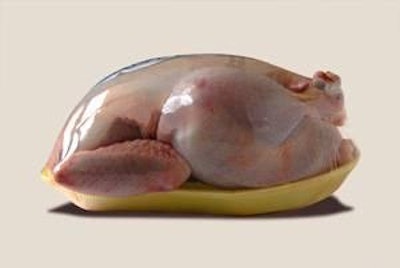
China’s Ministry of Commerce (MOFCOM) announced it will impose punitive import duties on a range of U.S. chicken parts, originally enacted on a temporary basis in February. These are in addition to countervailing duties, confirmed earlier in September, to offset what China sees as subsidies to the industry.
Both sets of duties have effectively been in place since February. According to the National Chicken Council, "the U.S. poultry industry does not engage in dumping and does not receive subsidies. China’s actions followed the tariffs imposed by the U.S. on automotive tires made in China and U.S. Congressional action against the proposed export to the U.S. of cooked poultry products of Chinese origin."
The announcement comes a year after the agency launched an anti-dumping investigation in response to a petition filed by the Chinese Animal Agriculture Association and imposes specific rates of additional duties for three companies whose exports to China were reviewed during the investigation. These are: Pilgrim’s Pride, 53.4%; Keystone Foods, 50.3%; and Tyson Foods, 50.3%, according to the USA Poultry & Egg Export Council (USAPEEC). The final duty rate for the 32 other U.S. export companies that registered in the investigation will be 51.8%; the “all-others” rate – for any exporter that did not register in the investigation – will be 105.4%.
From January to July 2010, the poultry trade with China was running at about 13% of its volume for the same period in 2009.
“We flatly reject MOFCOM’s assertion that our industry dumped or sold subsidized U.S. chicken on the Chinese market. U.S. chicken products were sold in China at prevailing market prices. These products are in high demand in China,” said USAPEEC President Jim Sumner.
“We are especially disappointed that MOFCOM declined to accept a settlement of the case that would have been a win-win for both the U.S. and Chinese industries,” he said. The industry is planning its next steps in appealing MOFCOM’s findings, according to Sumner.
















